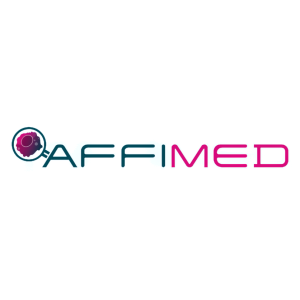Affimed Provides Clinical Response Update on AFM24-102 Trial in EGFR-wildtype Non-Small Cell Lung Cancer
- Data update from AFM24-102 Phase 1/2a combination study includes 15 heavily pre-treated patients from the EGFR-wildtype (wt) non-small cell lung cancer (NSCLC) expansion cohort
- Follow-up shows three of the initially reported responses have now been confirmed (1 CR, 2 PR) and one still awaiting a confirmatory scan
- Study to be expanded to a total of 40 EGFRwt NSCLC patients
- Enrollment in the EGFR-mutant (mut) NSCLC cohort is ongoing
- Data from both the EGFRwt and EGFRmut cohorts expected in H1 2024
MANNHEIM, Germany, Jan. 08, 2024 (GLOBE NEWSWIRE) -- Affimed N.V. (Nasdaq: AFMD) (“Affimed” or the “Company”), a clinical-stage immuno-oncology company committed to giving patients back their innate ability to fight cancer, today provided an update on the clinical response data for the ongoing AFM24-102 phase 1/2a study in EGFRwt NSCLC.
As of January 4, 2024, updated information on the 4 responses in the 15 patients treated in the EGFRwt NSCLC cohort, now show 1 confirmed complete response (CR), 2 confirmed partial responses (PR) and 1 unconfirmed PR awaiting confirmation. Initial data as presented on December 11, 2023, showed 1 confirmed PR as well as 1 unconfirmed CR, and 2 unconfirmed PRs. The patients enrolled in the Phase 1/2a AFM24-102 in the EGFRwt NSCLC cohort of the trial previously had a median of 2 prior lines of therapy, were heavily pretreated, and all patients had progressed on PD-[L]1 targeted therapy.
Based on the promising response data from the EGFRwt NSCLC cohort, Affimed will expand enrollment to 40 patients. Additionally, the Company reported that enrollment of the EGFRmut NSCLC cohort is ongoing. Data from both cohorts are expected in H1 2024.
“We are encouraged by the responses in these patients who had all progressed on PD1 targeting therapy and made the strategic decision to expand this patient cohort,” said Dr. Andreas Harstrick, CMO and interim Chief Executive Officer of Affimed. “There is a significant unmet need for these patients who have exhausted all previous lines of therapy and did not respond to any therapies, including PD-1/PD-L1 treatment. We look forward to sharing more updates in the first half of 2024.”
About Affimed N.V.
Affimed (Nasdaq: AFMD) is a clinical-stage immuno-oncology company committed to giving patients back their innate ability to fight cancer by actualizing the untapped potential of the innate immune system. The Company’s proprietary ROCK® platform enables a tumor-targeted approach to recognize and kill a range of hematologic and solid tumors, enabling a broad pipeline of wholly-owned and partnered single agent and combination therapy programs. The ROCK® platform predictably generates customized innate cell engager (ICE®) molecules, which use patients’ immune cells to destroy tumor cells. This innovative approach enabled Affimed to become the first company with a clinical-stage ICE®. Headquartered in Mannheim, Germany, Affimed is led by an experienced team of biotechnology and pharmaceutical leaders united by a bold vision to stop cancer from ever derailing patients’ lives. For more about the Company’s people, pipeline and partners, please visit: www.affimed.com.
About the AFM24-102 Phase 1/2a Study
AFM24-102 is a Phase 1/2a open-label, non-randomized, multicenter, dose escalation, and expansion study evaluating AFM24 in combination with atezolizumab in patients with selected EGFR-expressing advanced solid malignancies whose disease has progressed after treatment with previous anticancer therapies (NCT05109442).
About AFM24
AFM24 is a tetravalent, bispecific innate cell engager (ICE®) that activates the innate immune system by binding to CD16A on innate immune cells and EGFR, a protein widely expressed on solid tumors, to kill cancer cells. Generated by Affimed’s fit-for-purpose ROCK® platform, AFM24 represents a distinctive mechanism of action that uses EGFR as a docking site to engage innate immune cells for tumor cell killing through antibody-dependent cellular cytotoxicity and antibody-dependent cellular phagocytosis.
In addition to studying AMF24 in combination with the checkpoint inhibitor atezolizumab, Affimed is also evaluating options for a combination of AFM24 with an allogeneic off-the-shelf NK cell product that the Company expects to be well suited for heavily pretreated patient populations.
Forward-Looking Statement
This press release contains forward-looking statements. All statements other than statements of historical fact are forward-looking statements, which are often indicated by terms such as “anticipate,” “believe,” “could,” “estimate,” “expect,” “goal,” “intend,” “look forward to,” “may,” “plan,” “potential,” “predict,” “project,” “should,” “will,” “would” and similar expressions. Forward-looking statements appear in a number of places throughout this release and include statements regarding the Company’s intentions, beliefs, projections, outlook, analyses and current expectations concerning, among other things, the potential of AFM13, AFM24, AFM28 and the Company’s other product candidates, the value of its ROCK® platform, its ongoing and planned preclinical development and clinical trials, its collaborations and development of its products in combination with other therapies, the timing of and its ability to make regulatory filings and obtain and maintain regulatory approvals for its product candidates, its intellectual property position, its collaboration activities, its ability to develop commercial functions, clinical trial data, its results of operations, cash needs, financial condition, liquidity, prospects, future transactions, growth and strategies, the industry in which it operates, the macroeconomic trends that may affect the industry or the Company, such as the instability in the banking sector experienced in the first quarter of 2023, impacts of the COVID-19 pandemic, the benefits to Affimed of orphan drug designation, the impact on its business by political events, war, terrorism, business interruptions and other geopolitical events and uncertainties, such as the Russia-Ukraine conflict, the fact that the current clinical data of AFM13 in combination with NK cell therapy is based on AFM13 precomplexed with fresh allogeneic cord blood-derived NK cells from The University of Texas MD Anderson Cancer Center, as opposed to Artiva’s AB-101 and other uncertainties and factors described under the heading “Risk Factors” in Affimed’s filings with the SEC. Given these risks, uncertainties, and other factors, you should not place undue reliance on these forward-looking statements, and the Company assumes no obligation to update these forward-looking statements, even if new information becomes available in the future.
Investor Relations Contact
Alexander Fudukidis
Director, Investor Relations
E-Mail: a.fudukidis@affimed.com
Tel.: +1 (917) 436-8102
Media Contact
Mary Beth Sandin
Vice President, Marketing and Communications
E-Mail: m.sandin@affimed.com








